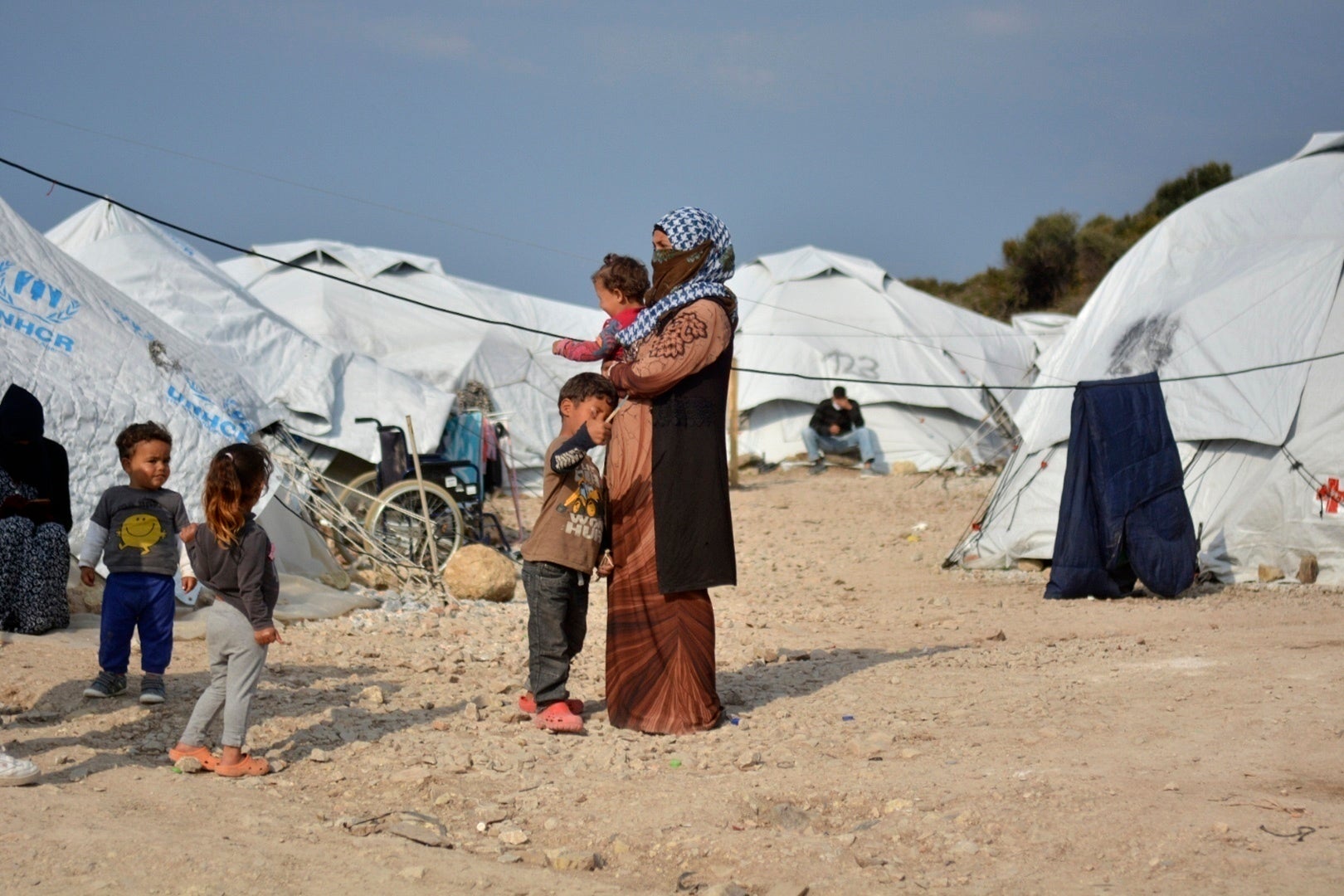Work on Greek migrant camp yet to begin 9 months after fire
Greece's migration minister says work has not yet begun on migrant reception center on the Greek island of Lesbos, almost 9 months after the notorious Moria camp was gutted by fire

Almost 9 months after a fire gutted a refugee camp on the Greek island of Lesbos work on a new reception center has still not begun despite pledges to have the facility built before next winter, Greece’s migration minister confirmed Wednesday.
Greek authorities said the fires were started deliberately last September by residents who were protesting their confinement at the overcrowded Moria camp. The camp, which was built for less than 3,000 people, was jammed with 12,500 people and was locked down due to a COVID-19 outbreak. Some people were later moved to the mainland or to a temporary camp.
Greek Migration Minister Notis Mitarachi said the tender process for choosing companies to build the new facility, foreseen to hold up to 5,000 people, is underway. He said it has taken time to get the necessary licenses and environmental permits, as well as finalize a grant for European Union funds.
He was asked whether he could guarantee that migrants would not have to spend a second winter in tents.
“In case we’re still not in the new camps in Lesbos, we have contingency planning to ensure that we will never again see these pictures we’ve seen in the temporary camp in Mavrovouni,” he responded.
The Mavrovouni camp was set up after the fire at Moria as a temporary emergency measure, and images of people trying to live in flooded, muddy tents made headlines for months.
Mitarachi said a separate refugee camp on the Greek island of Chios is also under tender, but that three other camps in Samos, Kos and Leros are expected to be up and running by this winter.
The Moria camp mainly accommodated people fleeing conflict and poverty in the Middle East, Africa, and Asia who arrived clandestinely on Lesbos from the nearby Turkish coast. Aid agencies had long warned of dire conditions at the facility, which was built to house just over 2,750 people.
Around 10,000 migrants remain in the Greek islands. After a meeting with Mirarachi in Brussels EU Home Affairs Commissioner Ylva Johansson said a priority must be to “make sure that we will be able to have good winter conditions for migrants.”
___
Follow all AP stories on global migration at https://apnews.com/hub/migration.
Bookmark popover
Removed from bookmarks